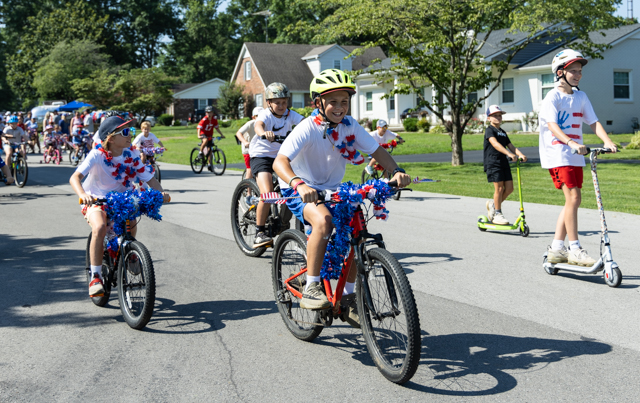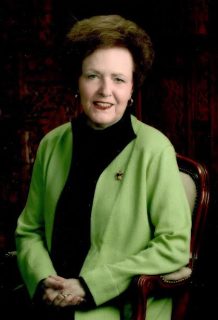Q&A: Ralph Beck
Published 1:00 am Sunday, May 11, 2014

- Ralph Beck
Summarize briefly your legal career and education.
I am a lifelong Bowling Green resident. I attended 11th Street Elementary School, Bowling Green High School (Class of 1973), Western Kentucky University (B.A. 1977) and the University of Louisville School of Law (J.D. 1980). I am admitted to practice by the Supreme Court of Kentucky (1980), United States District Court for the Western District of Kentucky (1980) and the United States Sixth Circuit Court of Appeals (1982).
I began practice in 1980 as an assistant public defender in Warren County. In 1983, I formed a partnership with another lawyer and expanded my practice to include domestic relations law. I also handled all of our appellate work in state and federal courts.
I served as Warren County domestic relations commissioner from 1995-2000. As commissioner, I presided over and decided nearly all matters before the circuit courts regarding family law.
What do you feel best qualifies you to serve as the next family court judge?
I feel I am the best qualified because I have the experience and demeanor necessary to be effective in this job. My 34-year legal career has been primarily focused on family law and criminal law. During the earlier part of my career, I was often appointed by the district court judges to represent the parents of children or the children themselves in dependency, neglect and abuse cases. As domestic commissioner, I handled thousands of domestic cases involving child custody, visitation, child support, grandparents’ rights, dissolution of marriage, division and evaluation of marital assets, contempt for violation of those orders and temporary motions in all manner of cases that would ordinarily come before the family court. My criminal law experience also equips me to handle the cases in family court that involve abuse and neglect of children. My experience is broad and that helps me to see and understand every side to the issue and this gives me a balanced perspective. Since I practice before many different judges in this and other counties in these cases I have learned from them the practices, procedures and attitudes to adopt and use as a judge and also those to avoid.
On a more personal note, my parents divorced when I was 5 years old, and I was the only child in my class in elementary school that had divorced parents. I was raised by a single mother and my grandmother. I rarely saw my father. I married a divorced woman 24 years ago who had a 3-year-old child and we have raised her together. I think of her as my daughter. She, too, rarely saw her father. She is now a lawyer herself here in Bowling Green. So I am a child of a broken home and married into a broken home. I was raised by two very strong women and have extreme empathy for persons in difficult situations. I am very empathetic to issues involving families and would strive to make these families whole.
What should be the top priority of a family court judge?
I believe the top priority should be to instill confidence in the public that the very important position is being handled fairly and with regard to all points of view. Everyone deserves respect and fair consideration of their points of view. The overriding and absolute imperative is to do everything possible to protect innocent children from harm, whatever the cause.
As an attorney who has practiced in Warren County Family Court, what aspects of court do you think could be improved?
I am very concerned with the length of time that cases take to achieve a final outcome. It seems to me that cases drag on for much longer than they need to in the court. Problems arise from the number of cases needing court time. I would personally review cases to make sure they are not unduly delayed and have frequent status conferences in complex matters to identify and solve issues without clogging up the docket. Utilizing telephone conferences and email to schedule and resolve docket questions and minor issues also will save time by taking the matter out of the courtroom. In juvenile cases there is no procedure currently in place for parties themselves to schedule motions that they may wish to have heard before the court. This causes unnecessary delays, so I would have regular motion days at least twice a month for juvenile cases. I would attempt as much as possible to enforce definite time limits in hearings to attorneys and parties litigating their case.
Family courts statewide have seen an increase in people who are representing themselves in cases. How much of a concern is this in Warren County and what would you do to address this issue?
Warren County has a limited self-help program. The court’s rules are very complex. Several nearby counties, for example, Butler and Edmonson, have through their family court judge formulated a self-help divorce packet and other numerous self-help packets with detailed instructions that can be filled out by a person without an attorney and presented to the court. Jefferson County has long had similar packets through the clerk’s office. It would be my priority to create and supply such self-help packets at a low cost to litigants who have uncontested divorces and other cases, such as visitation and child support requests that can proceed without incurring expensive legal fees and valuable court time. These packets also contain forms to request that filing fees be waived in cases where the parties truly cannot afford to pay them.
The Warren County Attorney’s Office has an active child support collection staff. As family court judge, what sort of initiatives would you seek to implement to ensure compliance with child-support payments?
The child support office has done an excellent job under Amy Milliken. We are now ranked in the top 20 percent in the state in collection and establishment of child support, when before her term, we were near the bottom. At any given time, the Warren County Child Support Office has about 6,000 open cases. To help continue this good work, I would offer more docket time to child support cases in my court in order to pursue collection of these payments. I would obtain this extra docket time due to my efforts to streamline the docket as I have previously said. Coordination with the commonwealth’s attorney regarding pursuing felony criminal action also is important to hold accountable flagrant abusers of the system.
Many juveniles come through the family court system as youthful offenders or in custody and abuse/neglect cases. How would you as a judge best serve the interests of juvenile offenders?
Senate Bill 200, which was passed last month and will be implemented next year, attempts to assist the courts by allowing a 15-person panel to be formed in each judicial district that would include members taken from counseling providers, police, county attorney’s office and others to assist the court in managing status-type offenses and reduce the number of juveniles who are placed in detention. I believe it is important to manage the available resources of the county to give these juvenile offenders a more hopeful outlook. It is certainly important to keep them in school as long as possible and to make sure that if they have drug or alcohol issues that these are addressed as early as possible so that they do not become lifelong addictions causing hardship for them as adults and continuing the pattern with their children.
What do you feel is the most important issue affecting juveniles in the family court system?
In many instances the juvenile or family in question does not come to the attention of the court until the problems they are experiencing have become severe. I believe the teachers are in the front lines of these situations, as they often are the first to notice indicators of abuse and neglect. Also they are aware of the status offenses such as truancy and behavioral issues before they come to the court’s attention. It seems to me in my practice that often times the reports and pleas of the teachers regarding these children are not given enough attention. I would like to discuss the matter with the representatives of Cabinet for Families and Children, boards of education, police and related agencies to establish a procedure and precedent that would enable the teachers to feel confident that their observations and fears concerning possible abuse and neglect and related matters are given the attention they deserve.
What sort of initiatives would you promote to reduce instances of truancy?
Truancy is often a problem of the parents not paying enough attention to the children. The school will notify the parents of the truancy, and it is the parents’ obligation to make sure their children arrive at school in a timely fashion or have a valid excuse if they do not. The parents should be held strictly accountable for the behavior of the children in this regard. Once this happens, the instances of truancy will be reduced. A pattern of excessive truancy in a particular family should generate a concern that should be investigated by the Cabinet for Families and Children to determine if there is an underlying problem within the family structure itself.
Family court judges preside over a host of complex, emotionally charged cases, with an ever-expanding docket. How do you see the role of family court evolving as the caseload continues to expand beyond conventional divorce cases?
The family court often requires adults and children to be evaluated, counseled and educated by professionals. As such, I would dedicate one member of my staff to deal exclusively and liaison with the various agencies, insuring open and frequent interaction with the court. Additionally, I embrace the idea that family court one day will handle juvenile criminal matters. Presently the family court handles the so-called status offenses; however, juvenile criminal matters are handled in District Court. These criminal matters often occur in families that are having other crisis situations. The concept of “one family, one judge” is no better served than when the juvenile matters that have resulted in criminal activity by those children can also be dealt with in the family court. This would be an area where I can bring my combined experience with family and criminal law to great benefit.






